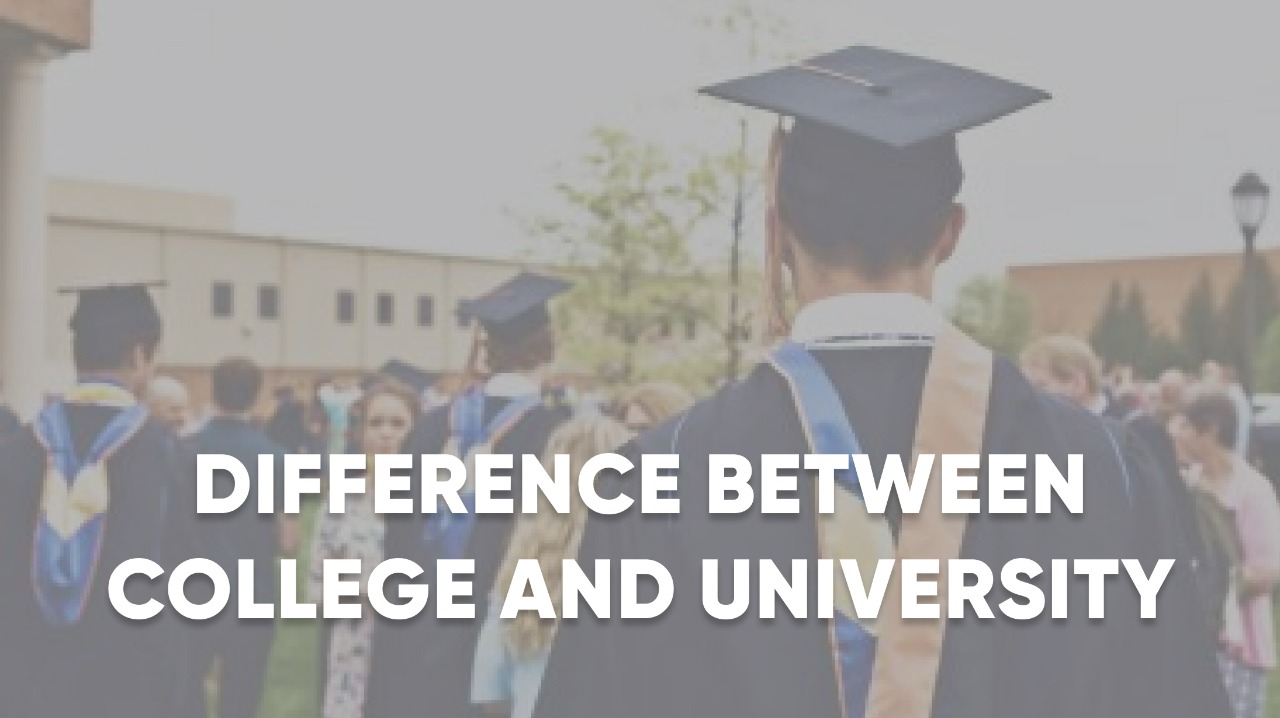Canada has always been a superior choice among international students to pursue any education. This last choice is taken seriously as most international students start to weigh the differences between college and university pros and cons in Canada.
The provincial government in Canada takes care of the educational sector, thus ensuring the quality of education at colleges or universities in Canada is of high standards.
The Canadian government has issued some crucial instructions for immigrants arriving in Canada. These guidelines have been issued mainly in the wake of the global pandemic. In these latest guidelines, the government summarises the roles and responsibilities of DLIs, provinces and territories, and Canada's government in supporting international students.
Why Do Students Prefer Canada Over Other Countries?
Whether you choose to study in one of our large, vibrant cities or settle on a small campus in a warm, welcoming community, your experience will be one that will shape your life. It may lead to a career and a future in Canada or better career prospects at home.
At the very least, it will give you access to our four beautiful seasons, wide-open spaces, abundant wildlife, multicultural diversity, a clean environment, and incredible quality of life.
Here are a few reasons why students prefer Canada:
1. Good standards of living
The country has everything if you're looking for a high life. Canadians and international students in Canada enjoy a high standard of living. It's a great place to live and work.
2. Affordable cost of living
Canada has some of the lowest university tuition fees among English-speaking countries. Whatever your budget may be, you'll find something just right for you in our diverse range of educational options. Research the cost of post-secondary programs and living expenses in the city or town of your choice so you can prepare your budget.
3. Standard of education
Canada is recognized worldwide for its outstanding quality of education—from elementary school to post-secondary studies. Our educators are highly trained and bring diverse perspectives to the classroom. At the university level, 2 out of every five academics hold at least one international degree.
Education in Canada
The country offers students two post-secondary education choices: universities and colleges. While you might consider colleges and universities to be the same in Canada, there is a difference between them. This college and university difference matters as the choice will determine the structure of the academics and other related factors.
Universities in Canada
In Canada, a university is an academic institution governed by the provincial government but operates independently regarding academic topics such as program quality, teachers, and policies and procedures. Universities in Canada are degree-granting institutions that award bachelor's, master's, and doctoral degrees, as opposed to colleges which grant diplomas.
One of the major differences between college and universities in Canada is that universities usually place a strong emphasis on analytical abilities as well as academic and professional programs.
Advantages of Studying at a Canadian University
1. Diverse Programs:
One of the top factors for Canadian colleges and universities differences is the program choices available. At the university, you have a range of programs to choose from. Whether an undergraduate or postgraduate program, Canadian universities ensure that there are multiple programs and courses for international students to choose from.
2. Overview of Real-world:
The teaching staff at Canadian universities are well versed in the fields in which they are teaching. They are aware of what the current market demands and blend this knowledge during the study program to prepare students for what is expected of them.
3. Multiple Facilities:
Universities in Canada offer a range of educational facilities to assist students' learning experiences. From study rooms to labs and even research centres, universities offer excellent student facilities during their study program.
Disadvantages of Studying at a Canadian University
1. Longer Study Duration:
University study programs work as per the course undertaken. For instance, with UG programs in Canada, the program is for 3-5 years, depending on the field chosen. Few international students would prefer to have a shorter study duration and spend more time studying the right skills for a better career opportunity.
2. Apply to Jobs after Graduation:
Once a student graduates from the university, they can apply for full-time jobs. Unlike students who undertake a diploma program, they have a shorter course period and can join a job immediately after.
3. Expensive Fees:
The fees for each university in Canada are different. For studying here with a tight budget, catering to the fees will be difficult. For instance, if you study in any university in Edmonton, Canada, on a per term basis, the costs range between 3,900 CAD- 700 CAD.
Colleges in Canada
Unlike in the USA, "colleges" local or community colleges offering undergraduate degrees. Colleges in Canada provide technical training and diplomas that respond to changing labour trends and the demands of a changing economy.
Advantages of Studying at a Canadian College
1. Shorter Courses:
Diploma programs are short when compared to university programs in Canada. They have a 1 year or 2 years based on the programs chosen by the student. Due to this shorter course period, more international students prefer applying to Colleges here.
2. Develops Skills:
The agenda here is to help students develop skills for the course chosen. Colleges in Canada don't prefer teaching the whole academics for one program. They educate students on the skill they wish to achieve to work in the field chosen.
3. Easy Apply to Masters:
After you complete a diploma program, you can start applying for a Masters's program. This certification is accepted when you apply for a Masters's program in any Canadian university.
4. Affordable Fees:
The fees in the Colleges in Canada are relatively cheaper when compared to the universities in Canada. The tuition fees for studying in the top colleges in Canada range between 7000 CAD- 20,000 CAD a year.
5. Individual Student Attention:
Since the application for diploma programs is less, the class size for such students is smaller. This proves to be a benefit here as students can receive individual attention from experts teaching them in any field.
Disadvantages of Studying at a Canadian College
1. Limited Knowledge:
The diploma program's main agenda is to educate students on the skills they need to ace their careers better, thus their programs are limited to this only. Unlike Universities in Canada, which cover all the subjects, Colleges in Canada are limited to teaching one topic under the chosen course.
2. Lesser Scholarship Opportunities:
Scholarship opportunities in Canada are higher in universities when compared to colleges in Canada. Since the fees are affordable, this funding opportunity is not required.
3. Focused on Skill-building only:
Colleges in Canada are more focused on building the right skills for students. They don't provide a complete picture of the other subjects offered under a set field. This limits the knowledge and options for students here.
4. No Mistakes in Career Choice:
When you decide to upskill, you need to be confident about it. If you're unsure, pursuing a career in that field would be of no value. This is one of the reasons why students are urged to decide confidently which skill they wish to grasp before applying to Colleges in Canada.
Student Visas
The benefit of studying in Canada is that you get the right to bring your family and a spouse with you. After completing your studies, you can also apply for an open work permit in Canada. It is the ideal destination for International Students as the Canadian government provides exclusive rights and freedom of work while studying.
The process of applying for a Canada visa involves the following steps:
Step 1: Download the visa application
Step 2: Attach all the documents supporting the application
Step 3: Pay the visa processing fee and biometrics fee
Step 4: Submit your application
Step 5: Give your biometrics (fingerprint and photograph) and visit the embassy or consulate.
Step 6: Upon reviewing your background check and eligibility, you will receive your decision.
The immigration department may also ask for additional documents during the review stage.
Visa Processing
The processing time for Canadian Visas is defined as the time it takes for Immigration, Refugees and Citizenship Canada (IRCC) to process the individual's application from the day they receive it. These are otherwise known as CIC or IRCC processing times.
Study Permit Processing Time
Like work permits, Canadian Study Permit Processing Times depend primarily on the applicant's country of residence. Typically a Canadian study permit can be processed between 1to16 weeks.
Post-Graduate Work Permit (PGWP)
When applying for a Canadian post-graduate work permit after your studies, one can expect to wait from 2 to 6 months. While waiting, individuals can work if they apply for PGWP before their student permit expires.
An experienced Canada Immigration Consultant can help applicants with visas and other procedures. The visa process and application are more likely to be fast-tracked. Their goal is to approve successful applicants within weeks.
A compelling new strategy to shorten Canadian immigration processing timelines has started. Sean Fraser, Canada's Minister of Immigration, committed to a news conference in January 2022. Minister Fraser unveiled several new initiatives to shorten processing timelines for several of Canada's most popular immigration programs.
The visa processing times below are just an estimate. Due to COVID-19, these processing times may vary. Use the IRCC Processing Times tool to determine how long your Canada visa processing time may take.
Canada will likely invite 401,000 new immigrants on permanent residence visas. Out of this number, 108,500 immigrants will get an invitation under the Federal Express Entry System, while 80,800 will get an invite through Provincial Nominee Programs (PNPs). Canada is planning to invite more than one million people by 2023.














Post Comments